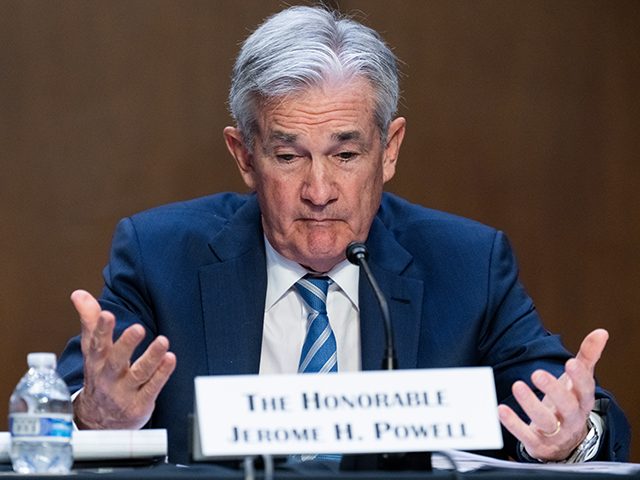Federal Reserve Chairman Jerome Powell said that stronger-than-expected economic data in recent months means that the central bank is likely to need to raise interest rates higher than previously anticipated.
“Although inflation has been moderating in recent months, the process of getting inflation back down to 2 percent has a long way to go and is likely to be bumpy,” Powell said in prepared testimony before the Senate Banking Committee on Tuesday. “As I mentioned, the latest economic data have come in stronger than expected, which suggests that the ultimate level of interest rates is likely to be higher than previously anticipated.”
Powell added that the pace of the Fed’s hikes might need to accelerate if the economic data continues to come in hot.
“If the totality of the data were to indicate that faster tightening is warranted, we would be prepared to increase the pace of rate hikes. Restoring price stability will likely require that we maintain a restrictive stance of monetary policy for some time,” Powell said.
Powell’s remarks emphasized his often-made argument that restoring price stability is not in conflict with a strong labor market.
“Our policy actions are guided by our dual mandate to promote maximum employment and stable prices. Without price stability, the economy does not work for anyone. In particular, without price stability, we will not achieve a sustained period of labor market conditions that benefit all<” Powell said.
In the near term, however, higher rates are intended to reduce the demand for labor and are expected to raise unemployment.
“To restore price stability, we will need to see lower inflation in this sector, and there will very likely be some softening in labor market conditions,” Powell said.
Powell in on Capitol Hill for the first of two days of testimony to Congress about the economy and monetary policy.

COMMENTS
Please let us know if you're having issues with commenting.